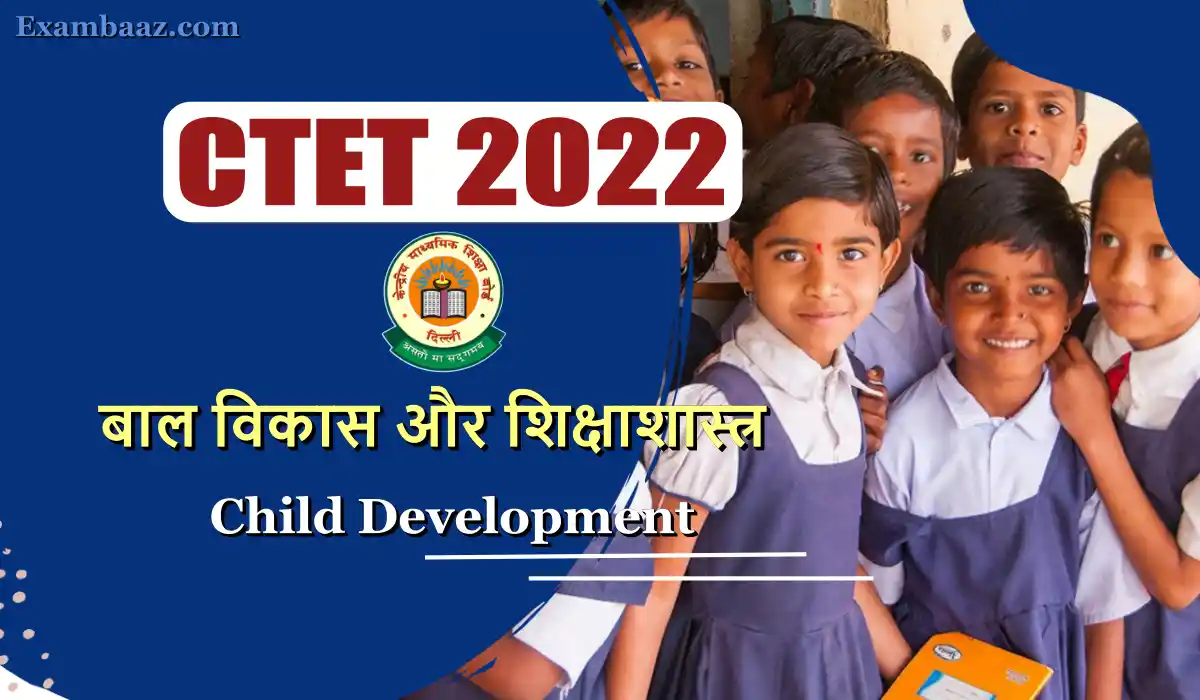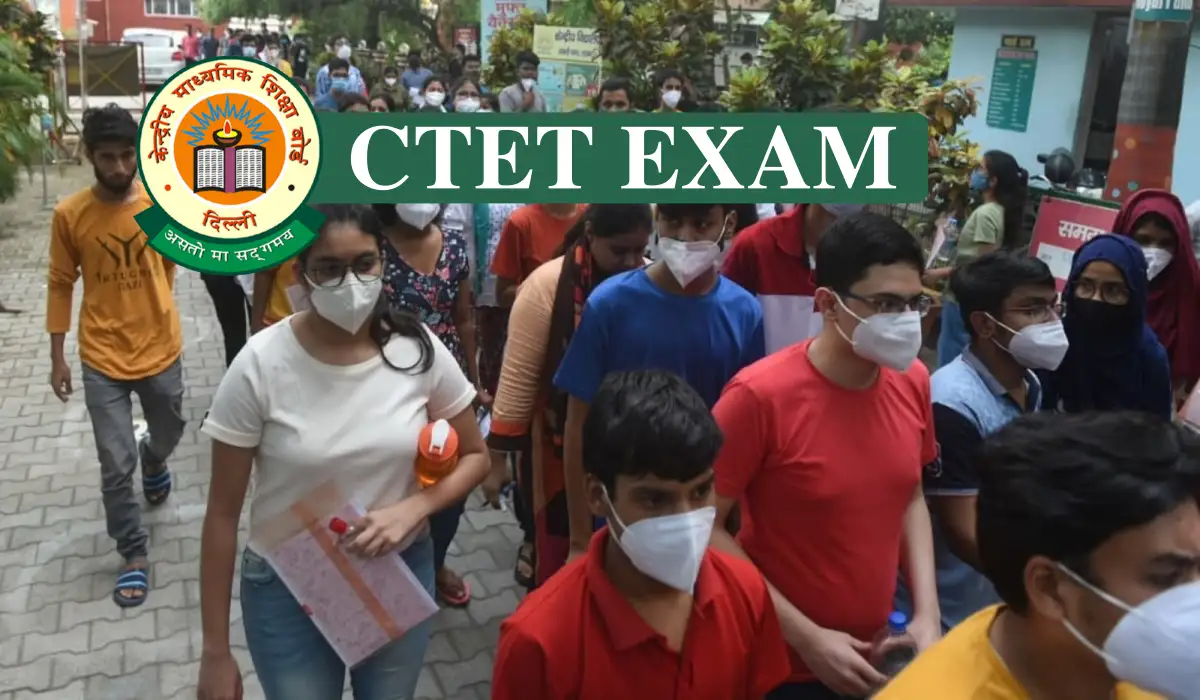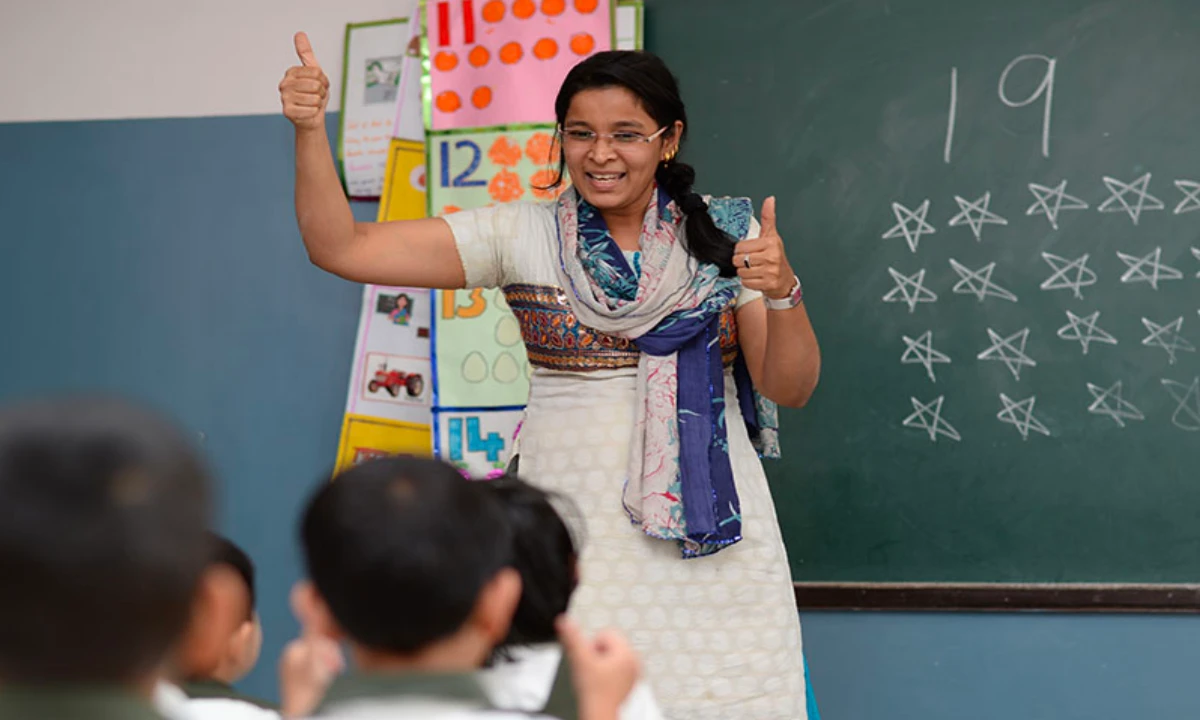
Pedagogy Important Question for CTET 2022: देश की बड़ी शिक्षक पात्रता परीक्षा में से एक केंद्रीय शिक्षक पात्रता परीक्षा का आयोजन इस वर्ष आगामी दिसंबर माह में किया जाएगा केंद्रीय माध्यमिक शिक्षा बोर्ड के द्वारा इस परीक्षा का आयोजन प्रतिवर्ष किया जाता है जिसके माध्यम से केंद्र सरकार के द्वारा संचालित विद्यालयों में शिक्षकों की नियुक्ति की जाती है यदि आप भी इस शिक्षक पात्रता परीक्षा की तैयारी कर रहे हैं तो यहां दी गई जानकारी आपके लिए बेहद शांति है.
यहां आज हम केंद्रीय शिक्षक पात्रता परीक्षा यानी CTET में पेडगॉजी से पूछे जाने वाले कुछ संभावित सवालों का अध्ययन करेंगे बता दे कि सीटेट के पेपर बना पेपर दो दोनों में बाल विकास और शिक्षाशास्त्र से जुड़े सवाल पूछे जाते हैं एग्जाम क्वालीफाई करने के लिए पेडगॉजी सेक्शन पर अपनी पकड़ मजबूत करना बेहद आवश्यक है अतः आने वाली परीक्षा के दृष्टिकोण से आपको इन सवालों का अभ्यास जरूर करना चाहिए.
सीटेट में पूछे जाने वाले पेडगॉजी के महत्वपूर्ण सवाल, यहां पढ़िए—pedagogy important question and answer for CTET exam 2022 paper 1 and 2
Q1. The nature of relationship between development and learning is viewed by Lev Vygotsky as having which of the following characteristics?/ निम्नलिखित में से कौन-सा कथन विकास एवं अधिगम के बारे में लेव वायगोत्सकी के दृष्टिकोण का सही वर्णन करता है?
A. It is linear in nature /दोनों का संबंध अनुकर्मिक है।
B. The relationship is static in nature/ दोनों का संबंध निश्चल है।
C. Learning often precedes development /सीखना अक्सर विकास के अग्रिम होता है।
D. Development often precedes learning/ विकास अक्सर सीखने के अग्रिम होता है।
Ans- C
Q2. The developmental theorists who view process of development as having substantial plasticity throughout life are likely to emphasize the importance of : /विकासात्मक सिद्धांतवादी मानते हैं कि विकास की प्रक्रिया जीवन भर चलती होती है। इस संदर्भ में से किसकी भूमिका बेहद महत्वपूर्ण है?
A. Heredity/अनुवांशिकता
B. Environment and experience /वातावरण एवं अनुभव
C. Domain specific intelligence/विशिष्ट प्रभावक्षेत्रीय बुद्धि
D. Crystallized intelligence/प्रतिकात्मक बुद्धि
Ans- B
Q3. ‘Discontinuity’ in the developmental process refers to/विकासात्मक प्रक्रिया में असांतत्य के क्या मायने हैं?
A. New ways of understanding the world that emerge during the process of development./ विकास की प्रक्रिया के दौरान उभरने वाले नए तरीके जो संसार को समझने में मदद करते है
B. Negative breaks in the developmental process./विकासात्मक प्रक्रिया में नकारात्मक विच्छेद।
C. A downward negative trend in development./विकास की प्रक्रिया में अधोमुखी गिरावट।
D. Interference in the developmental process/विकास की प्रक्रिया में हस्तक्षेप ।
Ans- A
Q4. Authoritative style of parenting / child rearing is based on:/पालन पोषण की प्राधिकारिक शैली किस पर आधारित है?
A. Making decisions for the child/बच्चे के बारे में खुद निर्णय लेना ।
B. Not listening to a child’s point of view/बच्चे के पक्ष को न सुनना ।
C. Making unreasonable demands from the child/बच्चे से अविवेकपूर्ण माँग करना।
D. Engage in joint decision making wherever possible/जब संभव हो तब बच्चे के साथ साझेदारी में निर्णय लेना।
Ans- D
Q5. According to Jean Piaget, the process of developmental change takes place through which of the following specific cognitive functions:/जीन पियाजे के अनुसार विकासात्मक बदलाव की प्रक्रिया निम्न में से किन विशिष्ट संज्ञानात्मक प्रकार्यों द्वारा घटित होती हैं?
A. Experience and social transmission/अनुभव एवं सामाजिक संप्रेक्षण
B. Assimilation and Accommodation/समावेशन एवं समायोजन
C. Maturation and Experience/परिपक्कता एवं अनुभव
D. Social transmission and maturation/सामाजिक संप्रेक्षण परिपक्वता
Ans- B
Q6. A 5 year old child was given 10 pebbles by her teacher. She put the pebbles in different formations e.g. a short line, a long line and a circle. She counted these pebbles repeatedly. Which of the following cognitive schemas is she attempting to attain according to Jean Piaget?/एक पांच साल की बच्ची को उसकी शिक्षिका ने पांच छोटे पत्थर दिए। बच्ची ने उन पत्थरों को अलग अलग प्रकार से लगाया- एक छोटी लाइन, एक बड़ी लाइन एवं एक वर्त। फिर उसने उन पत्थरों को बार-बार गिना । जीन पियाजे के अनुसार यह बच्ची निम्न में किस संज्ञानात्मक स्कीमा को ग्रहण करने कोशिश कर रही है?
A. Seriation/क्रमबद्धीकरण
B. Transitive inference/संक्रमण अनुमिति
C. Nominal scale/सांकेतिक मापदंड
D. Conservation of numbers/संख्या का संरक्षण
Ans- D
Q7. According to Lev Vygotsky, the process of cognitive development is mediated by:/लेव वायगोत्सकी के अनुसार संज्ञानात्मक विकास के लिए निम्न में किसकी मध्यस्थता आवश्यक है?
A. Cultural Tools/सांस्कृतिक औज़ार
B. Cultural Modes/सांस्कृतिक ढंग प्रकार
C. Cultural Signifiers/सांस्कृतिक सूचक
D. Cultural Derivatives/सांस्कृतिक व्युत्पन्न
Ans- A
Q8. Development in ‘Zone of Proximal Development’ according to Lev Vygotsky can be facilitated through:/लेव वायगोत्सकी के अनुसार ‘समीपस्थ विकास के क्षेत्र’ को किस प्रकार बढ़ावा दिया जा सकता है?
A. Collaborative dialogues/सहयोगात्मक संवाद
B. Observational learning/अनुकरण द्वारा सीखना
C. Reversible thinking/प्रतिवर्ती सोच
D. Expository learning/प्रतिपादक अधिगम
Ans- A
Q9. The stage 5 of post- conventional morality as given by Lawrence Kohlberg is marked by: /लॉरेंस कोहलबर्ग द्वारा सुझाई पश्च परंपरागत नैतिकता के अंतर्गत स्तर 5 की नैतिकता क्या अंकित करती है?
A. A free agreement to follow a social contract for the benefit of humanity/मानवता की भलाई हेतु सामाजिक अनुबंधों को स्वतंत्र रूप से निभाना
B. A free exploration of ethics even beyond social contract/सामाजिक अनुबंधों के परे जाकर नैतिकता को स्वतंत्र रूप से अन्वेषित करना
C. Formulation of moral rules that bypass ethics/ऐसे नैतिक नियमों को प्रतिपादित करना जो आचार संहिता के परे हो ।
D. The need to appear to be ‘a good person’/एक अच्छा व्यक्ति के रूप में प्रतीत होने की चाह।
Ans- C
Q10. A progressive educator need to embody which of the following attributes within a classroom:/ एक प्रगतिशील शिक्षिका को अपनी कक्षा में किस प्रकार का रवैया अपनाना चाहिए?
A. Empathy, control, care/समानुभूति, नियंत्रण एवं परवाह का
B. Empathy, control, discipline/समानुभूति, नियंत्रण एवं अनुशासन का
C. Empathy, realness, care/समानुभूति, वास्तविकता एवं परवाह का
D. Empathy, realness, control/समानुभूति, वास्तविकता एवं नियंत्रण का
Ans- C
Read more:
Vygotsky Theory of Social Cultural Development Notes for CTET and All TET Exams
उपरोक्त आर्टिकल में आज हमने केंद्रीय शिक्षक पात्रता परीक्षा के पेपर 1 और 2 में पेडगॉजी (Pedagogy Important Question for CTET 2022) से पूछे जाने वाले महत्वपूर्ण प्रश्नों का अध्ययन किया, सभी TET परीक्षाओ की नवीनतम जानकारी के लिए हमारे टेलीग्राम चैनल के सदस्य जरूर बने Join Link नीचे दी गई है।
| Follow Facebook – Click Here |
| Join us on Telegram – Click Here |
| Follow us on Twitter – Click Here |

